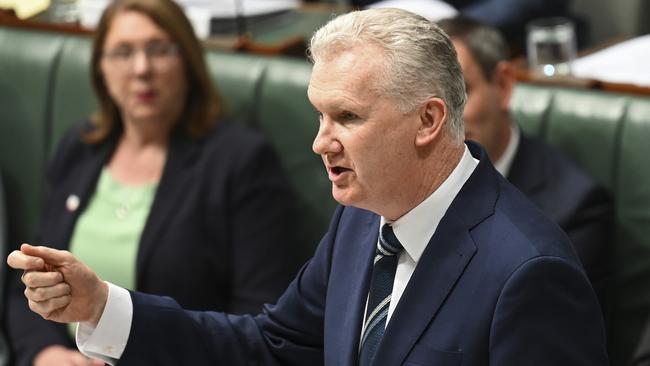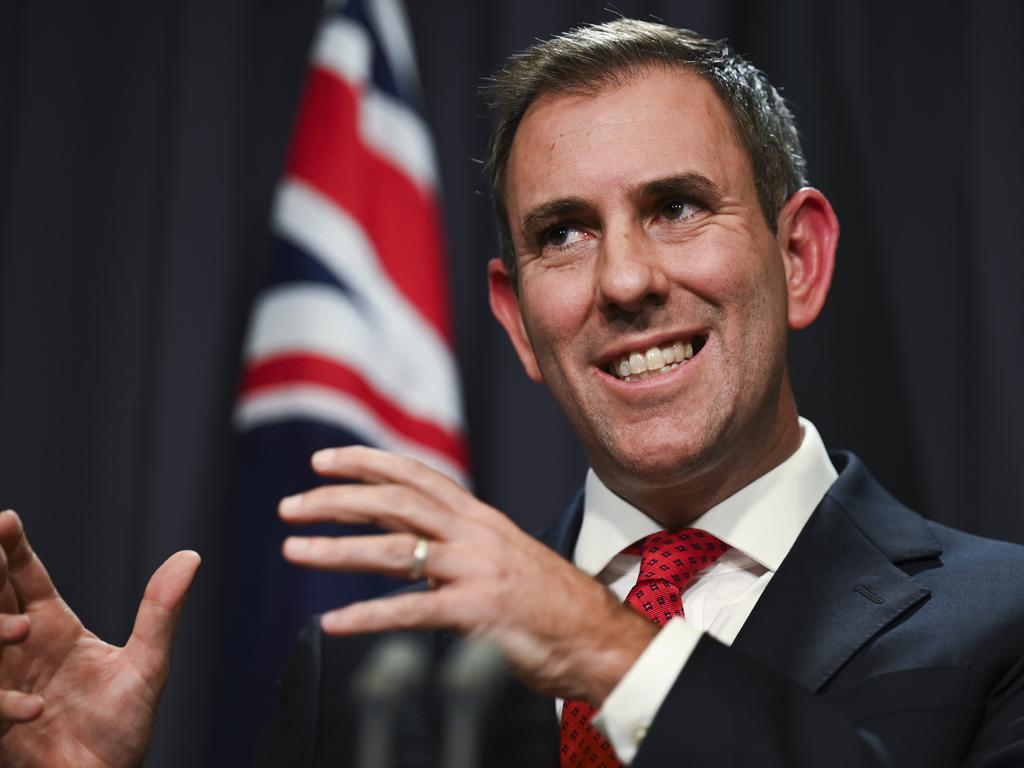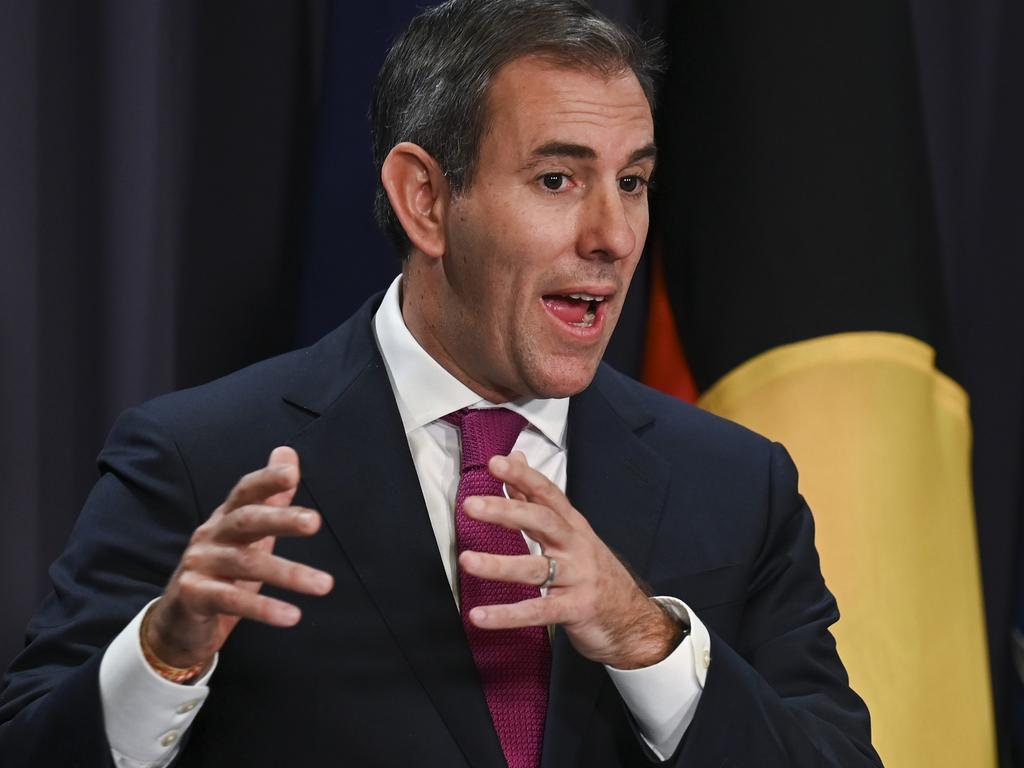Industrial relations anti-competitive ‘flaw’ could drive up costs
Tony Burke’s IR shake-up could drive-up housing, grocery and transport costs under a ‘flaw’ that industry groups claim enables anti-competitive behaviour, price fixing and monopoly conduct.

Tony Burke’s industrial relations shake-up could drive up housing, grocery and transport costs under a legislative “flaw” legal experts and business leaders claim would enable anti-competitive behaviour, price fixing and monopoly conduct.
Amid an escalating brawl with the Workplace Relations Minister over the government’s “Closing Loopholes” bill, industry groups have raised concerns based on new legal advice that unions and dominant corporates could be allowed to engage in “anti-competitive conduct”.
Following BHP warnings last week that the IR overhaul would cut company dividends by about $1.5bn, the mining and building industries say a flaw in the legislation effectively “repeals competition laws across large sectors of the economy”.
Miners and builders, who with small and big business, farmers and gas producers are funding a multimillion-dollar campaign against the reforms, say provisions in the bill support longstanding ambitions of some unions to push non-unionised workforces out of the transport industry.
The cross-sector alliance believes Competition and Consumer Act exemptions in the bill could be used to push smaller players out of business, including self-employed tradies and owner-driver truckies, and impose higher costs for homes, renovations, offices, groceries and fuel.
They claim the IR changes would allow business and unions to make collective agreements that apply to an entire supply chain, effectively “setting the price” across the transportation sector.
Once a collective agreement is reached and endorsed by the Fair Work Commission, industry leaders say it is automatically exempt from a raft of anti-competitive conduct prohibitions in the Act that protect small business, consumers and workers from abuses of power by big business and unions.
If exemptions are provided for market dominant practises, which typically carry penalties including jail time and millions of dollars in fines, business fears that unions could jack up the price of transport and set that price against the supply chain.
Seyfarth Shaw partner and workplace relations lawyer Henry Skene and other competition experts said there was a “significant risk of anti-competitive outcomes where employers are compelling smaller employers in an industry to apply higher terms and conditions, and are no longer able to compete on labour costs”.
“We know that’s the stated objective of the unions; some large employers have already agreed to support that objective. And it’s generally going to be in the commercial interest of a larger employer to apply commercial pressure on operators that are not meeting its leading terms and conditions,” Mr Skene said.
Master Builders Australia chief executive Denita Wawn, who represents 32,000 members across the $200bn construction sector, said “these changes can only lessen competition, stifle innovation, and make it harder for self-employed tradies and small subbies”.
“This will drive up the cost of building new homes, add to inflationary pressure, and be a big hit to the hip-pocket of consumers and the community at the worst possible time,” Ms Wawn said.
Minerals Council of Australia chief executive Tania Constable said it was “extraordinary that the Albanese government’s IR legislation is being used as a ‘Trojan Horse’ to effectively repeal competition laws across large sectors of the economy”.
“The impact on inflation and the cost of living will be devastating. The bill opens the door to price fixing and monopoly conduct across entire supply chains – this will increase the cost of everything that relies on a supply chain, starting with every item of every supermarket shelf,” Ms Constable said.
“The impact on smaller businesses will be catastrophic – it would push small operators out of the market, particularly owner-operator truck drivers, contractors and small labour hire firms.”
Ms Constable, who represents more than 120 members including mining giants BHP, Rio Tinto, Glencore and Whitehaven, said competition laws “exist for a very good reason – to protect consumers, workers and businesses from abuses of power”.
Industry groups and companies have engaged lawyers to pore through the government’s 284-page bill and 521-page explanatory memorandum, which were tabled in federal parliament on September 4.
Mr Burke, who was contacted for comment but is on leave, was forced to delay moves to push the legislation through parliament before Christmas after Senate crossbenchers raised concerns over the complex nature of the omnibus bill.







To join the conversation, please log in. Don't have an account? Register
Join the conversation, you are commenting as Logout